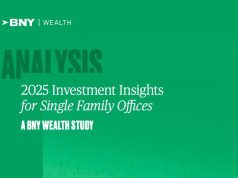KPMG Report – Global Family Business Tax Monitor 2020
1st December 2020 | Hong Kong
KPMG Private Enterprise has released the report on Global Family Business Tax Monitor for 2020. The report provides a comparison of the tax regimes and explore key factors impacting family business transfers.
For the report, KPMG surveyed 54 countries to examine the tax implications for the transfer of a family business, from one generation to the next, by inheritance and lifetime gift.
“2/3 of businesses contribute 70% to 90% of global GDP, 50% to 80% of global employment”
Introduction on Family Business
- Family-owned enterprises account for 2/3 or more of businesses globally, contributing around 70% to 90% of annual global GDP and 50% to 80% of global employment.
- Family wealth will be one of the places taxing authorities around the world look in searching for ways to raise revenue.
- Over the next 10 years, it is estimated that more than $15 trillion will pass from one generation to the next.
Key Summary
Tax rates on a family business with EUR 10 million value:
- 15 of the 54 countries have a inheritance / wealth tax for the intra-family transfer
- 16 of the 54 countries have a gift tax that applies for lifetime transfers
- United States have one of the highest gift or inheritance tax, before exemptions ($10 million inflation-adjusted tax exemption scheduled to sunset after 2025)
- 5 countries, France, United Kingdom, Netherlands, Spain and Ireland, have the highest tax rates in Europe (transfer at death), before tax exemptions.
- In Asia-Pacific, China have no gift or inheritance tax while South Korea have one of the highest tax in the world.
What’s New / Potential Developments
| Country | What’s New / Potential Developments |
| Australia | Gifts or family transfers (other than by inheritance – death) are classified as sales at market value. |
| India | India discontinued its Estate Duty Tax in 1985. Potential re-introduction of Estate Duty Tax since the past few years. |
| South Korea | A reform plan for the transfer of family business will shorten the post-management period from 10 years to 7 years. The obligation to maintain the industry, employment and assets will be eased. Expand use of the family-operated business deduction system, to encourage succession and incentivize employment and investment. |
| France | A share agreement (Pacte Dutreil) between parent and child is required to benefit from a tax exemption of 75% of transferred shares. |
| United States | The exclusion for taxable gifts and estates was raised to $10 million, with an annual inflation adjustment, beginning in 2017, but with a 2026 sunset provision. |
Tom McGinness, Global Leader, KPMG Private Enterprise Family Business, KPMG Private Enterprise, UK:
“The impact of COVID-19 is also prompting families to take stock of the sense of purpose and values of their business. Family businesses tend to take a long-term view and have a strong sense of community.
Increasingly, families are considering the broader societal impact of their business and their role in addressing issues from climate change to inequality and education.”
Karmen Yeung, Partner, KPMG Private Enterprise in China:
“An increasing trend in mainland China and even more so in Hong Kong (SAR), is establishing a family office to operate the family business and manage assets. Family members often don’t have the knowledge to work through governance, legal, tax and succession issues and, therefore are looking for outside expertise.
Especially for families that have assets in multiple countries, the family office model can help them to better understand and manage the complex rules they are subject to around the world.”
1. Top 10 Largest Countries by GDP

Tax rates on a family business with EUR 10 million value:
- 4 countries have no gift or inheritance tax applicable to the transfer of a family business – China, India, Italy and Russia.
- 6 countries have taxes that apply both to lifetime transfers and transfers on death – United States, Germany, United Kingdom, France, Brazil and Canada.
The top 10 largest GDP in the survey: United States, China, Germany, India, United Kingdom, France, Brazil, Italy, Canada, Russia.
Japan is the 3rd largest country by GDP in the world, and is not included in the list of 54 countries in this survey.
2. In Asia-Pacific

Tax rates on a family business with EUR 10 million value:
In Asia-Pacific, China does not have a gift or inheritance tax. There have been no changes to China’s tax policy with respect to the succession of family business.
South Korea have the highest tax rate in the region and one of the highest in the world for transfer of a family business. For a transfer on death of a EUR 10 million business in South Korea, the tax can be reduced to zero with the EUR 14.2 million (KRW 20 billion) exemption if the heir has been in the family business for at least 10 years. The relief would not apply for a larger business with value above EUR 100 million.
In Australia, there is no wealth or gift tax.
3. In Europe

Tax rates on a family business with EUR 10 million value:
In Europe, 5 countries – France, United Kingdom (UK), Netherlands, Spain and Ireland have the highest tax for transfer on death before exemptions. France, UK, Netherlands, Spain and Ireland also ranks the highest for taxes on gift transfers. The effective tax rates drop for all of the countries after exemptions, with the UK dropping effectively to zero. There may be potential changes to reduce or eliminate exemptions for UK.
France is a good example of the benefits family businesses can realize with proper planning to take advantage of available allowances. While the tax rate is quite high at 45% to 50%, a number of allowances and incentives are offered that can reduce the effective tax rate to 15% to 25%.
Italy has among the lowest tax burdens in Europe for business transfers. Italy has no gift or inheritance tax.
In Germany, tax drops to zero after exemptions for intra-family transfer of a EUR10 million business by inheritance or by gift. However, larger family businesses do not receive the same favourable treatment. For transfer of a EUR 100 million business, whether by inheritance or gift tax, Germany has one of the highest tax burdens in Europe, even after exemptions.
In Americas

Tax rates on a family business with EUR 10 million value:
The United States (US) has one of the highest tax rates globally for transfer of a family business, either by gift or inheritance, before exemptions. After exemptions, family business taxation becomes much more competitive in the US and lower than a number of jurisdictions, depending on the size of the business.
US family businesses are presently benefiting from a $10 million (adjusted for inflation) exemption, that will sunset after 2025.
Canada offers a tax burden only about half of the US tax before exemptions for the transfer of a EUR10 million family business. But the transfer is taxed as personal income tax, and after exemptions the US still maintains a significant advantage over Canada.
In Africa

Tax rates on a family business with EUR 10 million value:
In Africa, South Africa has high tax rates for the transfer of a family business with very limited exemption or deductions to reduce the tax burden compared with what other jurisdictions have.
Nigeria has no gift or inheritance tax. But there can be an applicable levy for registering a business that is transferred to a new family member.
The full KPMG Report – Global Family Business Tax Monitor for 2020 can be accessed at the webpage: KPMG Report – Global Family Business Tax Monitor for 2020 and the report can be download here.
KPMG Report – Global Family Business Tax Monitor for 2020
Key Content in Report
- Family business global tax perspective
- Change is in the air for family business
- Complexity creates challenges
- Early Planning & Preparation is Key
- Early planning and preparation is key
- COVID-19 is accelerating family business planning
- Transferring the family business to the next generation
- The war for talent
- The emergence of the family office
- Charting a path for the future
About KPMG
KPMG is a global network of professional services firms providing Audit, Tax and Advisory services. We operate in 147 countries and territories and have more than 219,000 people working in member firms around the world. The independent member firms of the KPMG global organisation are affiliated with KPMG International Limited (“KPMG International”), a private English company limited by guarantee. KPMG International and its related entities do not provide services to clients. Each KPMG firm is a legally distinct and separate entity and describes itself as such.
In 1992, KPMG became the first international accounting network to be granted a joint venture licence in mainland China. KPMG was also the first among the Big Four in mainland China to convert from a joint venture to a special general partnership, as of 1 August 2012. Additionally, the Hong Kong firm can trace its origins to 1945. This early commitment to this market, together with an unwavering focus on quality, has been the foundation for accumulated industry experience, and is reflected in KPMG’s appointment for multidisciplinary services (including audit, tax and advisory) by some of China’s most prestigious companies.
KPMG member firms and its affiliates operating in mainland China, Hong Kong and Macau are collectively referred to as “KPMG China”. KPMG China is based in 27 offices across 25 cities with around 12,000 partners and staff.
Sign Up / Register
Caproasia Users
- Manage $20 million to $3 billion of assets
- Invest $3 million to $300 million
- Advise institutions, billionaires, UHNWs & HNWs
Caproasia Platforms | 11,000 Investors & Advisors
- Caproasia.com
- Caproasia Access
- Caproasia Events
- The Financial Centre | Find Services
- Membership
- Family Office Circle
- Professional Investor Circle
- Investor Relations Network
Monthly Roundtable & Networking
Family Office Programs
The 2025 Investment Day
- March - Hong Kong
- March - Singapore
- July - Hong Kong
- July - Singapore
- Sept- Hong Kong
- Sept - Singapore
- Oct- Hong Kong
- Nov - Singapore
- Visit: The Investment Day | Register: Click here
Caproasia Summits
- The Institutional Investor Summit
- The Investment / Alternatives Summit
- The Private Wealth Summit
- The Family Office Summit
- The CEO & Entrepreneur Summit
- The Capital Markets Summit
- The ESG / Sustainable Investment Summit



































